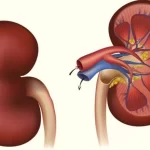Tips for Getting a Good Night’s Sleep
Getting a good night’s sleep is essential for your physical and mental health. When you don’t get enough sleep, you’re more likely to experience fatigue, difficulty concentrating, mood swings, and even weight gain.
The good news is that there are several things you can do to improve your sleep habits. In this blog post, we’ll share 10 proven tips for getting a good night’s sleep.
Good night’s sleep Stick to a sleep schedule.
One of the best ways to improve your sleep is to stick to a regular sleep schedule. Go to bed and wake up at the same time each day, even on weekends. This will help to regulate your body’s natural sleep-wake cycle.
Create a relaxing bedtime routine.
A relaxing bedtime routine can help you wind down before bed and make it easier to fall asleep. This might include taking a warm bath, reading a book, or listening to calming music. Avoid watching TV or using electronic devices in the hour before bed, as the blue light emitted from these devices can interfere with sleep.
Make sure your bedroom is dark, quiet, and cool.
Your bedroom should be a place where you can relax and fall asleep easily. Make sure it’s dark, quiet, and cool. If you can’t block out all the light, try using blackout curtains or an eye mask. You may also want to use a fan or white noise machine to create a more relaxing environment.
Avoid caffeine and alcohol before bed.
Caffeine and alcohol can both interfere with sleep. Caffeine can make it difficult to fall asleep, while alcohol can disrupt your sleep later in the night. If you’re having trouble sleeping, it’s best to avoid these substances in the hours before bed.
Good night’s sleep Get regular exercise.
Regular exercise can help you sleep better at night. However, it’s important to avoid exercising too close to bedtime, as this can make it difficult to fall asleep. Aim to finish your workout at least 3-4 hours before bed.
Good night’s sleep Eat a healthy diet.
Eating a healthy diet can also help you sleep better at night. Make sure to include plenty of fruits, vegetables, and whole grains in your diet. Avoid processed foods, sugary drinks, and saturated and unhealthy fats.
See a doctor if you have a sleep disorder.
If you’ve tried the tips above and you’re still having trouble sleeping, it’s important to see a doctor. There may be an underlying medical condition that’s interfering with your sleep.
Good night’s sleep Relaxation techniques.
Relaxation techniques can help you wind down before bed and make it easier to fall asleep. Some popular relaxation techniques include deep breathing, meditation, and progressive muscle relaxation.
White noise Good night’s sleep
White noise can help to mask distracting noises and create a more relaxing environment for sleep. You can use a white noise machine, fan, or even an app on your phone to create white noise.
Get help from a sleep expert.
If you’ve tried the tips above and you’re still having trouble sleeping, you may want to consider getting help from a sleep expert. A sleep expert can help you identify and address the underlying causes of your sleep problems.
Conclusion:
Getting a good night’s sleep is essential for your physical and mental health. By following these tips, you can improve your sleep habits and wake up feeling refreshed and energized.
Keywords: sleep, sleep tips, good night’s sleep, insomnia, relaxation techniques, white noise, sleep disorder, sleep expert
If you’re having trouble sleeping, don’t hesitate to try the tips above. With a little effort, you can improve your sleep habits and wake up feeling refreshed and energized.






